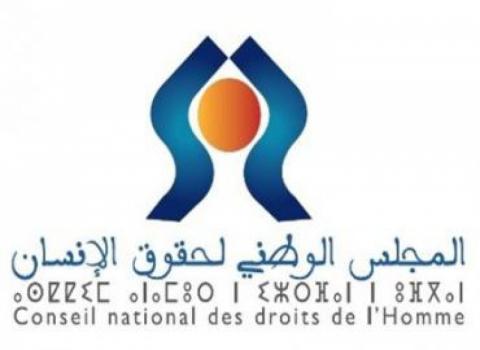
In its contribution to the Sub-Committee of Accreditation (SCA) of the International Coordinating Committee of National Institutions for the Promotions and Protection of Human Rights (ICC) – in view of the ICC's review of the Moroccan national human rights institution, the National Human Rights Council (CNDH), due in November 2015 – Alkarama has recommended the downgrading of the latter from an A to a B status, so as to mark its lack of compliance with the Paris Principles, and in particular its lack of independence from the royal authority.
The Paris Principles list a series of conditions to be met by National Institutions for the Promotion and Protection of Human Rights (NHRIs) to ensure their independence from the executive power and sound and effective functioning. Thus, only those institutions which fully comply with these principles can benefit from an A status, while those which are only partially compliant, are granted a B status, and a C status is assigned to those that are not compliant at all.
When reviewing the various aspects of the functioning of the NHRC, Alkarama noted the Moroccan NHRI's lack of conformity with many of the basic requirements listed in the Paris Principles in order to ensure its independence vis-à-vis the executive, both in terms of its legal basis and of the appointment process of its members, or even its results on the ground.
Insufficient legal basis
First, Alkarama expressed its concern with regards to the legal basis of the National Human Rights Council (CNDH). Created by the Royal Dahir No. 1-11-19 of 1 March 2011 to succeed the Advisory Council on Human Rights, the Moroccan NHRI would have benefited from a legislative act emanating from the Parliament.
A "royal Dahir" is indeed issued unilaterally by the King, without consulting the legislative body, a procedure which therefore violates paragraph A-2 of the Paris Principles, which states that "a national institution shall be given as broad a mandate as possible, which shall be clearly set forth in a constitutional or legislative text, specifying its composition and its sphere of competence." In spite of this, as Alkarama pointed out in its report, if the Constitution clearly foresees the establishment of the NHRC, this provision remains very vague and does not set out the mandate or the institution's sphere of competence.
Independence compromised by the broad power of the royal authority
The independence of the NHRC is also compromised by the broad power left to the royal authority in the appointment of the President and members of the institution. Indeed, the Dahir does not define precisely the selection criteria of the Council's members, allowing wide-ranging discretion to the appointing authority and opening the door to arbitrary appointments and exclusion.
Moreover, although the Dahir provides for consultation with civil society during the selection process, the Moroccan NGRi's members are ultimately chosen by the king. Thus, during this process, only shortlisted organisations had been invited to nominate candidates, excluding an important part of civil society. Furthermore, the Dahir does not foresee publicising calls for applications.
Ineffectiveness of Council's action
Empowered to receive individual complaints from victims of violations, the NHRC is required to remain accessible and to listen to the victims' concerns. It must also follow-up on cases submitted and intervene with the authorities so as to remedy breaches of rights and fundamental freedoms. Although the NHRC claims to perform this role in accordance with the Paris Principles, victims and local organisations and associations do not agree. As reported in several cases documented by Alkarama, families complained of a lack of responsiveness by the NHRC, which they see as a mediator of the authorities, with a role to defuse crisis situations that come from broken promises.
Noting that the NHRC "does not play the role expected from an A-status national institution," the report ends with a series of recommendations addressed to the NHRC and to the Sub-Committee on Accreditation (SCA), asking the National Human Rights Council (CNDH) to be accredited with a B status, because of its lack of compliance with the Paris Principles.
For more information or an interview, please contact the media team at media@alkarama.org (Dir: +41 22 734 1008).
